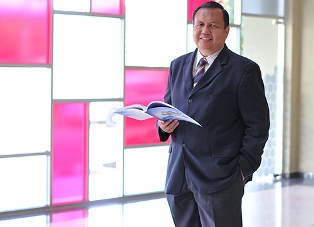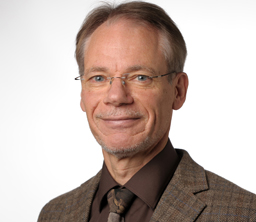Keynote Speaker
Mohamed Thariq Hameed Sultan @ M.T.H Sultan
M.T.H. Sultan was born in 1977 in a small town in Kuala Lumpur called Gombak. In 2011, he graduated from the Department of Mechanical Engineering, University of Sheffield United Kingdom as a Philosophy Doctorate. He began work in the Department of Aerospace Engineering, Faculty of Engineering, Universiti Putra Malaysia in 2011. Later in 2013, he was appointed as the Head of Aerospace Manufacturing Research Centre (AMRC) by Universiti Putra Malaysia. Being the Head of AMRC, M.T.H. Sultan published a series of paper which contributed significantly to the development of his field. During his tenure as the head of this center, he has secured an International Consultancy from Aerospace Research Centre (ARC), Sudan. He was appointed as the International Lead Consultant for Experimental & Computational Analysis of Composite Structures. His consultation also covers the field of Structural Composite Materials, particularly in the sectors of Aerospace Engineering. His work was based on the development of processing techniques for affordable composite materials using fibre preforming technologies.
M.T.H. Sultan was later appointed as the Head of Biocomposite Technology Laboratory (BIOCOMPOSITE) Institute of Tropical Forestry and Forest Products (INTROP), UPM in 2017. Being the Head of Biocomposite Technology Laboratory, he is also appointed as an Independent Scientific Advisor to Aerospace Malaysia Innovation Centre (AMIC) based in Cyberjaya, Selangor, Malaysia. For many years he headed the work on development, design and characterising impact damages on composite structures which has led him to published more than 158 journal articles and 6 books with Elsevier. The work on impact studies are now being carried out by almost 50 research scholars under his guidance. His research interest lies in the field of Hybrid Composites, Advance Materials and Structural Health Monitoring.
M.T.H. Sultan was elected by the members of the Institution of Engineers Malaysia to become the Chairman of Engineering Education Technical Division (E2TD). The objective of his division includes defining and influencing the future education trends in areas of Continuing Professional Development (CPD) Programmes, Accreditation requirement, Global curricular at the Technical and Graduate level, professionalism among engineering lecturers and post graduate training of graduate engineers. He also advises the IEM on the need for financial support towards engineering education, research and development (R&D) and monitoring global development in the field of Engineering Education.
In 2016, M.T.H. Sultan has secured almost RM 600,000 for a project under Newton Ungku Omar Fund namely Safe Biodegradable Packaging (SafeBioPack). This project has developed affordable innovative sustainable packaging with improved shelf-life performance. The packaging system was based on the use of cost-competitive, presently under utilised waste and the use of a new concept of active packaging; a packaging that will reduce/eliminate pathogen microbial growth, increasing shelf-life of packaged food (meat and vegetables). This will reduce food waste across the supply chain. The packaging system was designed with agri-waste (palm empty fruit bunch), setting-up a platform for other subsequent broader uses, and has contributed to minimizing waste-to-landfill problems.
Later in 2017, he was invited by the Royal Academy of Engineering (RAENG) United Kingdom for the Leaders in Innovation Fellowship (LIF) programme. As the UK’s national academy for engineering and a registered charity, the Royal Academy of Engineering brought him together with the other most successful and talented engineers from across the engineering sectors to advance and promote excellence in engineering and innovation both in the UK and globally. This LIF programme was run by the Academy and funded by the UK Government Department of Business, Energy and Industrial Strategy, Newton Fund programme. The Fellowship brings the leading technology entrepreneurs from Newton Fund partner countries to the UK for an intensive training course on innovation whilst also building Business-to-Business networks with similar enterprises in the UK.





